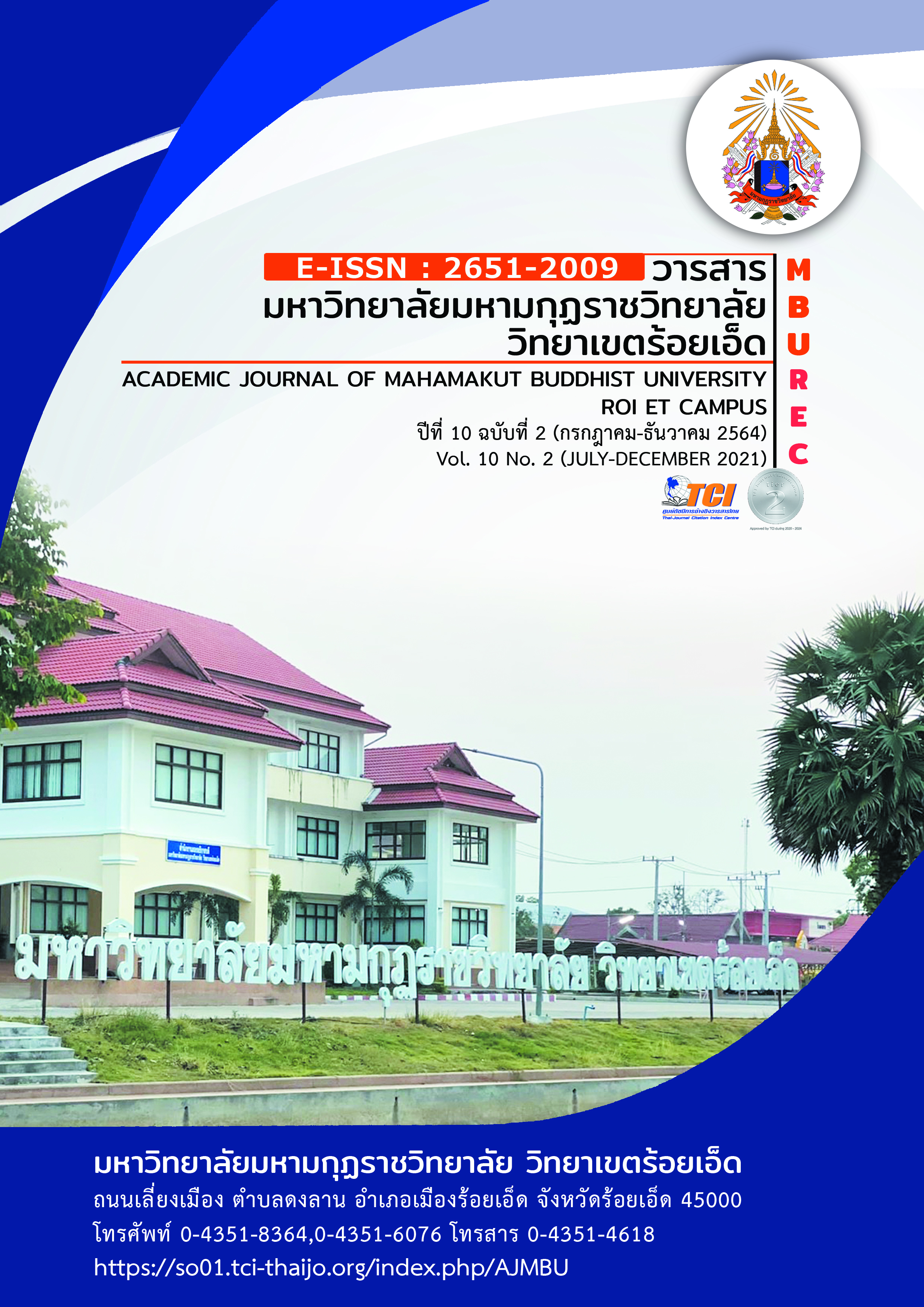A Model Effectiveness of Management of Administrators local Government Organizations According to the good Governance Paradigm In the Northeast Region
Main Article Content
Abstract
The objective of research article were 1) to study the level of the effectiveness of the administration of the executives, 2) to study the factors which influence the effectiveness of the management of the executives, 3) to study the factors which influence the effectiveness of the administration of the local administrative organization according to the governance paradigm in the northeast region. Sample group in this research. Executives and employees in the local government organization 450 persons. The instrument used in the research was a five level rating estimation questionnaire. By means of multiple regression analysis (Stepwise MRA, stepwise step).
The results of the research showed that: 1. The level of effectiveness of management of executives. Overall, in a high level, when considering each aspect, in a high level in all aspects. 2. The results of the study of factors affecting the effectiveness of the management of the executives Is a predictor or a factor that has a basic relationship with the dependent variable or predictor. with statistical significance at the level of .05. Out of the 8 predictions, there are only 7 relationships. Which can be ordered from the basic correlation coefficient (r) in descending order as follows. Strategy of administration team building coordination with communities human relations effective communication vision and cooperation respectively and the predictors or independent variables can jointly predict the effectiveness of management with statistical significance at the level of .05 equal to 0.855. And forecasters or factors that predict the effectiveness of management with statistical significance at the level of .05.
Article Details
References
จีรพรรณ์ จันทร์วิเชียร. (2561). เอกสารนำเสนอการประเมินคุณธรรมและความโปร่งใสในการดำเนินงานของหน่วยงาน. สกลนคร : กองนโยบายและแผน สำนักงานอธิการบดี มหาวิทยาลัยราชภัฏสกลนคร.
ณฐวัฒน์ พระงาม. (2555). การติดต่อสื่อสารแบบปฏิสัมพันธ์ในองค์การ. พิษณุโลก : มหาวิทยาลัยพิษณุโลก.
เบญจวรรณ วันดีศรี. (2550). การศึกษาความเป็นธรรมาภิบาลของนายกองค์การบริหารส่วนตำบลในจังหวัดร้อยเอ็ด. วิทยานิพนธ์ศิลปะศาสตร์มหาบัณฑิต สาขาสังคมศาสตร์เพื่อการศึกษา.บัณฑิตวิทยาลัย : มหาวิทยาลัยราชภัฏธนบุรี.
พรรณทิพย์ ศิริวรรณบุศย์. (2561). จิตวิทยาพัฒนาการ. กรุงเทพมหานคร : โรงพิมพ์แห่งจุฬาลงกรณ์มหาวิทยาลัย.
วิริศรา รัตนสมัย. (2543). การรับข่าวสารเพื่อสร้างความตระหนักสำนึกของประชาชนเกี่ยวกับการตรวจสอบการใช้อำนาจรัฐขององค์การบริหารส่วนตำบล (อบต.) จังหวัดสงขลา. กรุงเทพมหานคร : มหาวิทยาลัยธรรมศาสตร์.
วีระ ฤกษ์วาณิชย์กุล. (2551). ความคิดเห็นต่อการปฏิบัติตามหลักธรรมาภิบาลของราชการส่วนภูมิภาค: ศึกษากรณีที่ทำการปกครองอำเภอเมืองนครพนม จังหวัดนครพนม. ปัญหาพิเศษรัฐประศาสนศาสตรมหาบัณฑิต สาขาวิชานโยบายสาธารณะ. วิทยาลัยการบริหารรัฐกิจ มหาวิทยาลัยบูรพา.
สถาบันพระปกเกล้า. (2558). การบริหารงานภาครัฐกับการสร้างธรรมาภิบาล. กรุงเทพมหานคร : สถาบันพระปกเกล้า.
สถาบันบัณฑิตพัฒนบริหารศาสตร์. (2551). พฤติกรรมองค์การ. กรุงเทพมหานคร : ซีเอ็ดยูเคชั่น.
สิริวิภา ศรีปลั่ง. (2558). การศึกษาตัวชี้วัดธรรมาภิบาลด้านการมีส่วนร่วมของประชาชนในการปฏิบัติงานของสำนักการสาธารณสุขและสิ่งแวดล้อมเทศบาลเมืองกาฬสินธุ์. วิทยานิพนธ์ศิลปศาสตรมหาบัณฑิต. บัณฑิตวิทยาลัย : มหาวิทยาลัยขอนแก่น.
สิทธิชัย เทวธีระรัตน์. (2543). การเปิดรับสารและทัศนคติของกลุ่มคนวัยทำงานต่อการโฆษณาเพื่อสิ่งแวดล้อมทางโทรทัศน์. วิทยานิพนธ์ปริญญามหาบัณฑิต สาขาวิชาการโฆษณา. คณะนิเทศศาสตร์ : จุฬาลงกรณ์มหาวิทยาลัย.
สถาบันพระปกเกล้า. (2552). รัฐธรรมนูญแห่งราชอาณาจักรไทย พุทธศักราช 2550. พิมพ์ครั้งที่ 2. กรุงเทพมหานคร : สำนักพิมพ์คณะรัฐมนตรีและราชกิจจานุเบกษา.
อรศรี งามวิทยาพงศ์. (2551). กรอบความคิดเพื่อการศึกษาชุมชนอย่างบูรณาการ. กรุงเทพมหานคร : มหาวิทยาลัยธรรมศาสตร์.
Hollander, M., & Wolfe, D. A. (1999). Nonparametric statistical methods. 2nd ed. New York : Wiley.
Stufflebeam, Daniel L.; and Shinkfield, Anthony J. (2007). Evaluation Theory, Models, & Application. San Francisco : John Wilwy.


